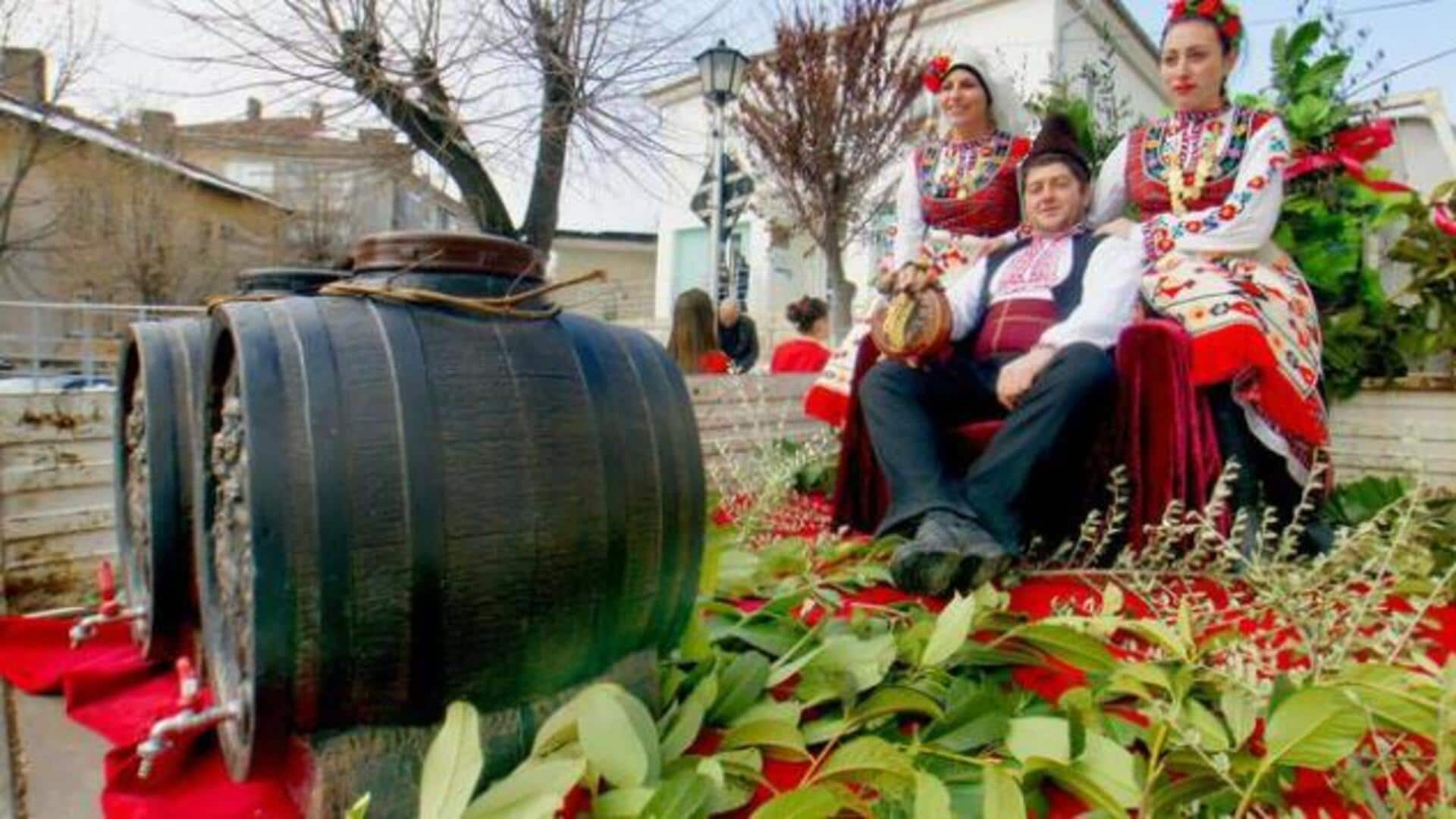5 Bulgarian traditions that still mesmerize tourists
What's the story
Bulgaria's vibrant history and culture are reflected in its unique and fascinating traditions.
From ancient rituals celebrating the changing seasons to modern customs rooted in cultural heritage, these traditions provide a glimpse into the beating heart of Bulgaria.
In this article, we delve into five of the most unusual Bulgarian traditions that captivate locals and bewitch visitors to this day.
Fire dance
Nestinarstvo: Dancing on embers
On June 3, an ancient ritual in Bulgaria blurs the line between devotion and daring.
Nestinarstvo, the annual celebration honoring Saints Constantine and Helena, features a unique spectacle: barefoot dances on smoldering embers.
Blending Christianity and pagan traditions, the nestinari (dancers) enter a trance-like state, believed to grant them divine protection as they carry the saints' icons across the glowing coals.
Vine Day
Trifon Zarezan: The day of vine growers
Celebrated on February 14, trifon zarezan signals the start of the vine pruning season in Bulgaria.
This day honors Saint Trifon, the patron saint of vine-growers and winemakers.
Festivities involve choosing a "king" from amongst the local vine growers, who then leads a procession through the vineyards.
Participants bless the vines for a bountiful harvest with wine and partake in traditional singing and dancing.
Mask Parade
Kukeri: Chasing away evil spirits
The kukeri festival (pictured) is a colorful tradition in which men wear intricate costumes and masks depicting mythical creatures to ward off evil spirits.
It takes place between New Year's Day and Lent in towns across Bulgaria.
Participants engage in ritualistic dances, the loud bells attached to their belts amplifying the spectacle.
The belief is simple: the scarier the costume, the better it can chase away evil.
Spring Tokens
Martenitsa: Welcoming spring with red and white
On March 1, Bulgarians commemorate Baba Marta by gifting martenitsas—handcrafted talismans woven from red and white yarns, representing health and happiness to welcome spring.
People adorn themselves with these charms until they spot a stork or a blossoming tree—harbingers of spring—before fastening them onto trees as offerings for good fortune.
Masquerade magic
Surva Festival: A parade of masquerade magic
Held in Pernik in late January, the Surva Festival features participants from Bulgaria and beyond, parading their masquerade costumes in one of Europe's biggest celebrations of masked folklore traditions.
Competitors perform dances believed to bring prosperity, while their elaborate masks serve to ward off evil forces for the year to come.
